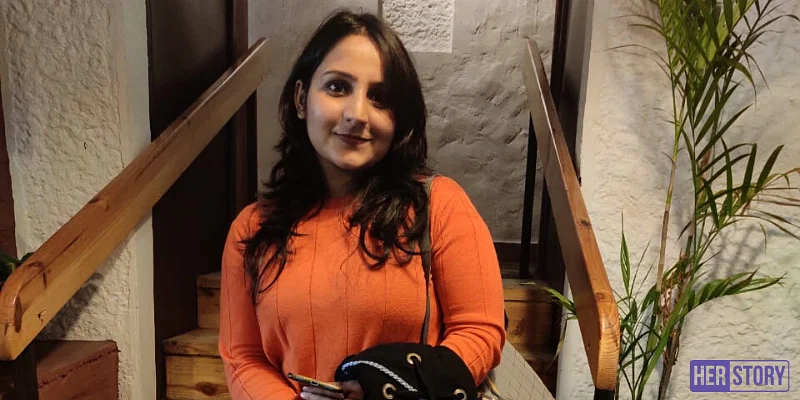Entrepreneurs
Surbhi Gupta Crafting Dreams Against All Odds

In small towns across India, entrepreneurship can often be perceived as an unconventional or unsafe career path, especially for women. Surbhi Gupta, hailing from Alwar, Rajasthan, faced this very challenge. Her passion for design and entrepreneurship was met with scepticism from her parents, who believed it didn’t “suit a girl.” However, Surbhi’s determination and creative spirit propelled her to chase her dreams despite these obstacles. From a young age, Surbhi exhibited a knack for creativity, frequently up cycling items and showcasing her crafting skills. Her true passion lay in design and creativity, but her parents were hesitant to support her aspirations. In their eyes, the fashion industry, closely associated with design, didn’t align with their vision for her future.
Despite these discouragements, Surbhi focused on her studies, excelled in grade XII, and secured admission to Delhi University to study commerce. Her parents expected her to pursue a career in teaching, seek a government job, or embark on an MBA journey. Surbhi even attempted the Common Admission Test (CAT) to appease them. However, despite her best efforts, she couldn’t crack the exam on two occasions. Her failures led to her parents doubting her abilities and suggesting that she learn household work to prepare for marriage.
This challenging period of doubt and depression prompted Surbhi to turn to crafting as a form of therapy. She began creating gift boxes and hampers, rediscovering her love for presentation. Her work gained recognition on Instagram, attracting inquiries from interested customers. Surbhi seized this opportunity to transform her passion into a business.
Kalakar Gift Studio: A Gifted Venture
Kalakar Gift Studio was born, a venture that empowers individuals to present perfect gifts to their loved ones. Surbhi crafts unique gift boxes and hampers tailored to the recipient’s preferences or themed around special occasions. The price of each gift box depends on the client’s requirements, with the most expensive one priced at Rs 4,000. Among her most popular creations is the “snack bouquet,” an edible gift thoughtfully curated to align with the recipient’s favourite snacks. Surbhi’s artistic flair and use of materials like Gota fabric, paints, and calligraphy result in handcrafted masterpieces. Since her entrepreneurial journey began in 2018, Surbhi has created approximately 200 unique gifts.
Surbhi’s business initially served her local circle of friends and expanded gradually. It wasn’t long before her venture achieved recognition and success. In 2019, she held a pop-up store in Alwar, where she sold 50 Valentine’s Day-themed gift boxes within a week. The owner of the coffee shop hosting her pop-up store was so impressed that he provided the space for free, affirming Surbhi’s determination to pursue her dreams. Despite her achievements, Surbhi faced resistance from her parents concerning her choices. However, she refused to be deterred and applied for the Impact Entrepreneurship course at the Srishti Institute of Arts and Design in Bengaluru. Moving away from the confines of her small town and judgmental attitudes, Surbhi embarked on a new journey of growth.
Through her experience with depression, self-discovery, and following her passion, Surbhi is now developing gift boxes that combine materialistic pleasure with emotional value. These themed gift boxes will feature motivational messages to inspire people to overcome challenges, accept themselves, and pursue their dreams. Surbhi aims to inspire others to listen to their inner voices and not succumb to external pressures. Despite being an introvert, she reflects on her strength and confidence in pursuing her dreams, and she’s determined to help others do the same.
Starting her venture with a personal savings of Rs 4,000, collected over the years as gifts from her grandfather, Surbhi has made Rs 1.2 lakh from sales, reinvesting a significant portion back into her business. She also hopes to empower women by providing employment opportunities, helping them achieve financial independence. Though her local clientele dwindled after her move to Bengaluru, Surbhi continues to receive orders through Instagram. She uses social media as a platform to market her work and gain insights into the industry. Her participation in the course at Srishti is further honing her entrepreneurial skills.
In the future, Surbhi envisions opening a gift outlet that offers an experience rather than merely a physical store. Her journey is a testament to the power of determination and self-belief in the face of adversity, inspiring others to pursue their passions unapologetically.
